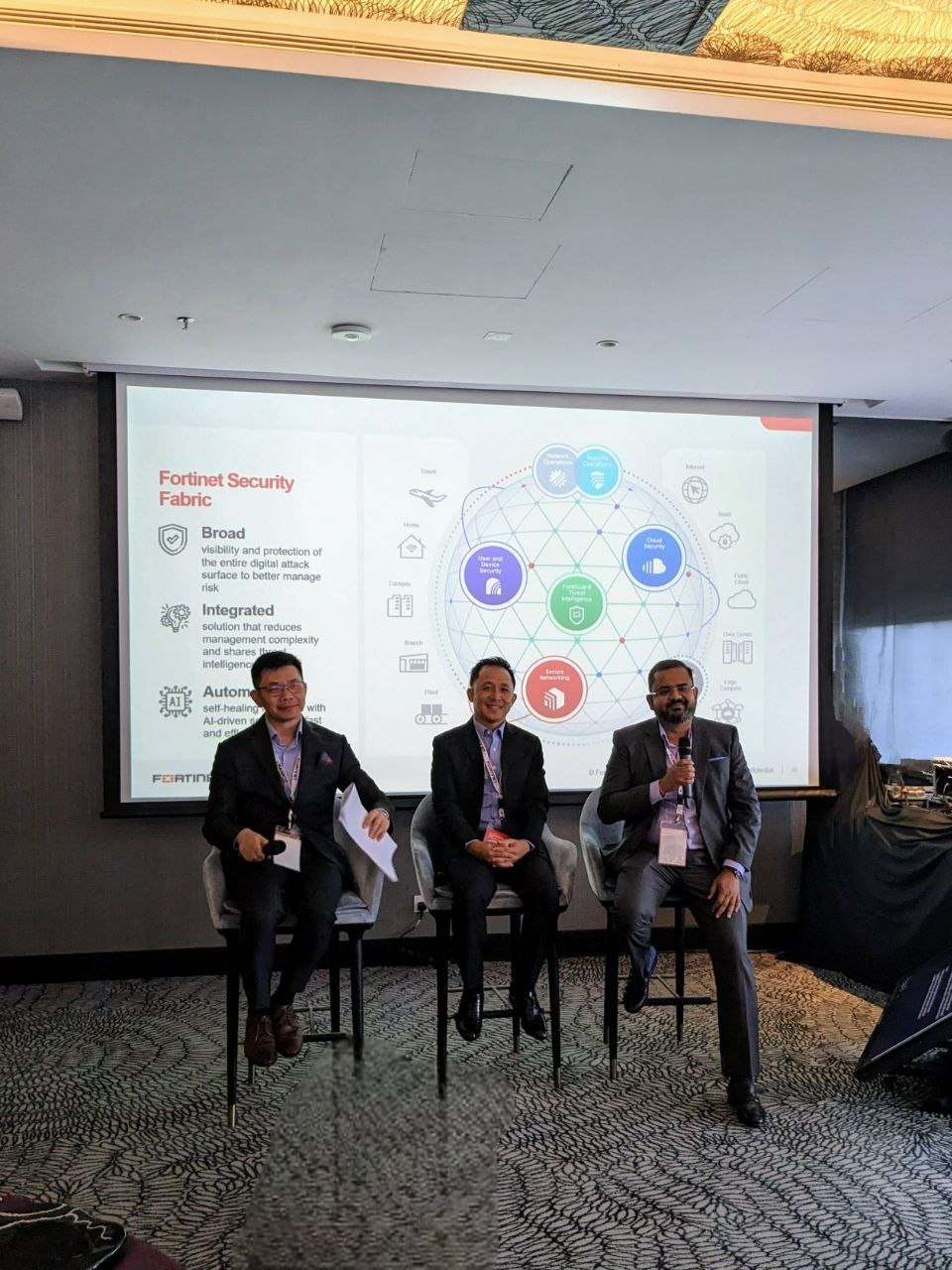Fortinet Malaysia SASE Survey Finds 92% of Organisations Have Hybrid or Fully Remote Work Models

At a recent Fortinet media briefing and luncheon, the global cybersecurity leader unveiled the findings of a new Asia Pacific SASE survey it commissioned from IDC. The report is based on a survey conducted by IDC across nine countries in Asia Pacific, exploring cybersecurity leaders’ perspectives on hybrid work, its impact on their organisations in the last year, and their strategies to mitigate the security challenges arising from the adoption of hybrid work.

Key findings from the survey discussed during the briefing include:
- The Rise of the ‘Branch-Office-of-One’: According to the survey, 92% of respondents in Malaysia have a hybrid or fully remote working model, with more than two-thirds (68%) having at least 50% of their employees working in hybrid mode. This shift to remote work has resulted in employees becoming ‘branch offices of one,’ working from their homes or other locations outside the traditional office. Consequently, 66% of respondents in Malaysia anticipate managed devices to surge by more than 100% over the next two years (with some expecting growth of 400%). Additionally, 56% in Malaysia expect unmanaged devices to grow by over 50%. This is expected to compound the complexity and risk of security breaches, placing additional strain on already overburdened IT security teams.
- Unmanaged Devices Pose a Risk: With cloud computing and remote work becoming more prevalent, an increasing number of users, devices, and data are located outside of enterprise networks. Currently, 30% of devices connecting to networks in Malaysia are unmanaged, raising the possibility of security breaches. Survey respondents in Malaysia expect this figure to rise, with 56% predicting a 50% increase by 2025.
- The Need to Secure Cloud: With hybrid work increasing, employees require multiple connections to external systems and cloud applications to remain productive. Survey respondents indicated that their employees in Malaysia need more than 30 connections to third-party cloud applications, increasing the risk of security breaches. Over the next two years, 100% of respondents in Malaysia expect this number to double, while more than 62% feel that this number will triple, exacerbating the risk. Maintaining network security while ensuring employee connectivity to third-party and cloud-based services is a significant challenge, as traditional security measures are inadequate.
- Increased Security Incidents: Hybrid work and the growth in managed and unmanaged connections have caused a significant rise in security incidents, with 52% of surveyed organisations in Malaysia reporting more than triple the number of breaches. According to the Survey, 86% of respondents in Malaysia have experienced at least a 2X increase in security incidents. The top security incidents include phishing, denial of service, data/identity theft, ransomware, and data loss. However, only 49% of organisations across Asia have dedicated security personnel, which leaves them more vulnerable to security incidents and breaches.
- SASE: a Game-Changer for Hybrid Work: Peerapong Jongvibool, Fortinet’s Vice President for Southeast Asia and Hong Kong, stressed the need for organisations to invest in the right technology to manage and protect their hybrid work environments and remote connections. To tackle the challenges of hybrid work, many organisations across Malaysia plan to invest in a Single-Vendor SASE solution to improve their security posture and provide consistency in the user experience for remote employees. The need for a comprehensive solution that offers a consistent security posture for users on and off the network while simplifying security policy management and enhancing the user experience for remote employees is driving many organisations to explore SASE.
- The Preference for a Single Vendor: As organisations adopt SASE to manage networking and security services, they are seeking a converged platform to streamline their operations. According to the survey, 82% of respondents across Malaysia prefer a single vendor for networking and security capabilities, with 86% consolidating their IT security vendors. More than half (62%) of the respondents prefer a single vendor for cloud-delivered security services and SDWAN, citing various benefits such as reduced security gaps, improved network performance, ease of deployment, and addressing integration and scalability challenges.
- Rashish Pandey, Fortinet’s Vice President of Marketing and Communications, Asia, emphasised the urgency of adopting comprehensive security strategies, noting that “Single-Vendor SASE, with its converged networking and security capabilities, is proving to be a game-changer for many organisations seeking a simplified and consistent security posture for users both on and off the network.”
As hybrid work becomes the new norm, the complexity of security will continue to be a pressing issue for organisations. With comprehensive security solutions like Single-Vendor SASE, they can better address these challenges and ensure a secure and consistent experience for employees both on and off the network.




